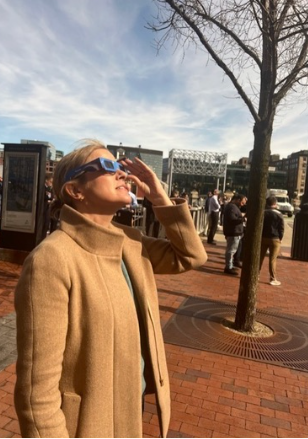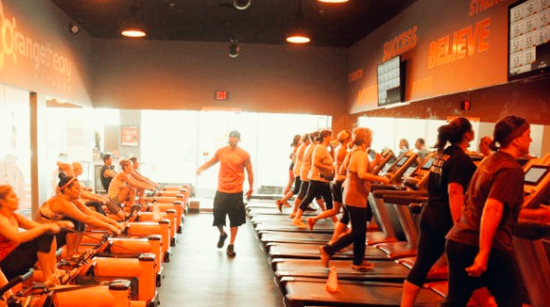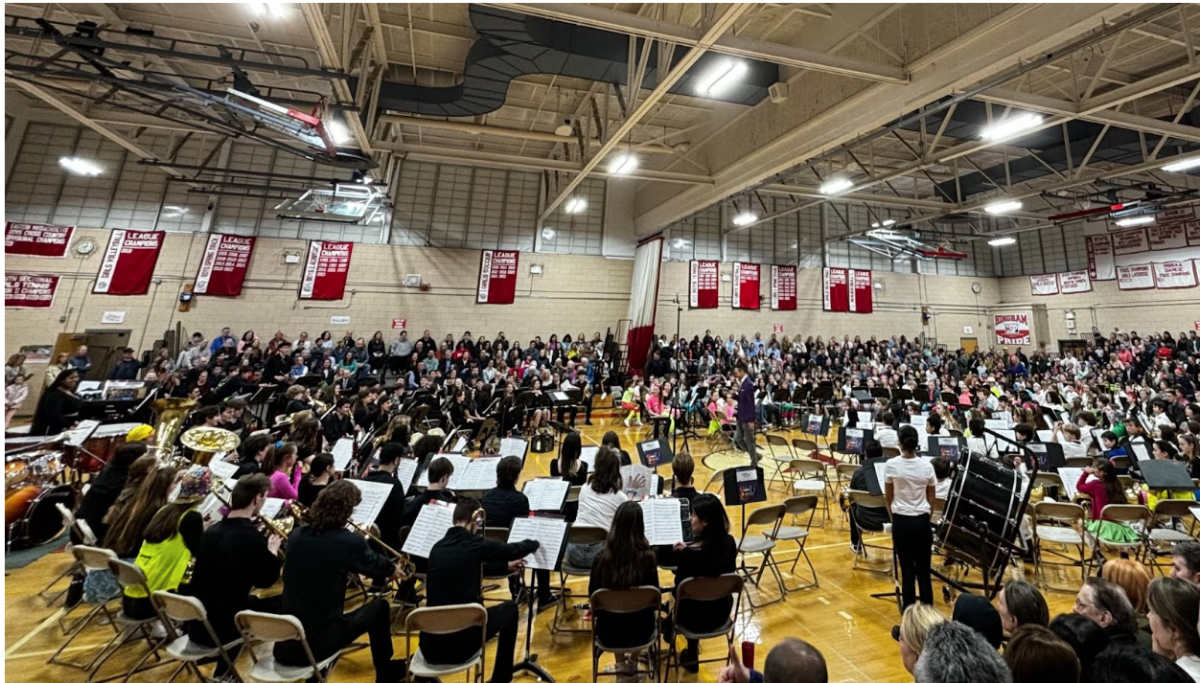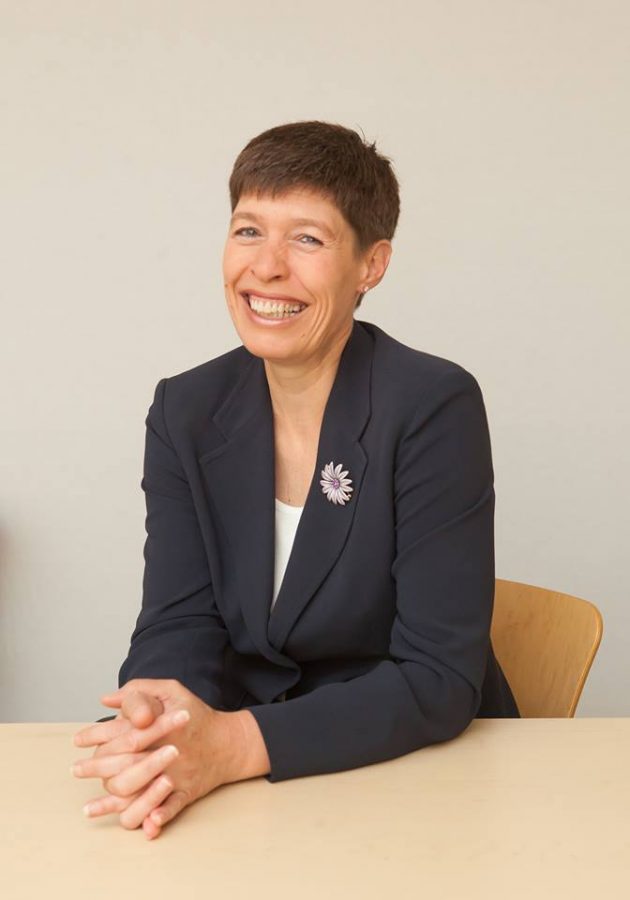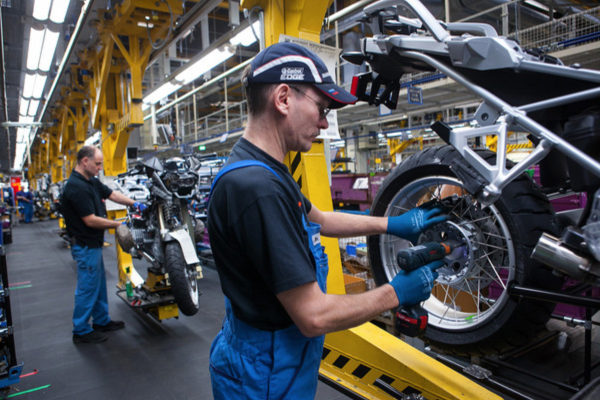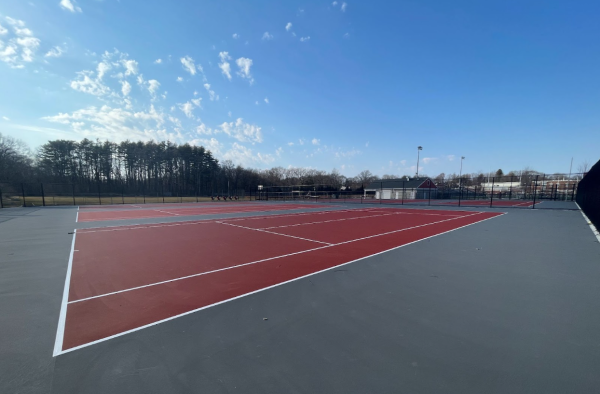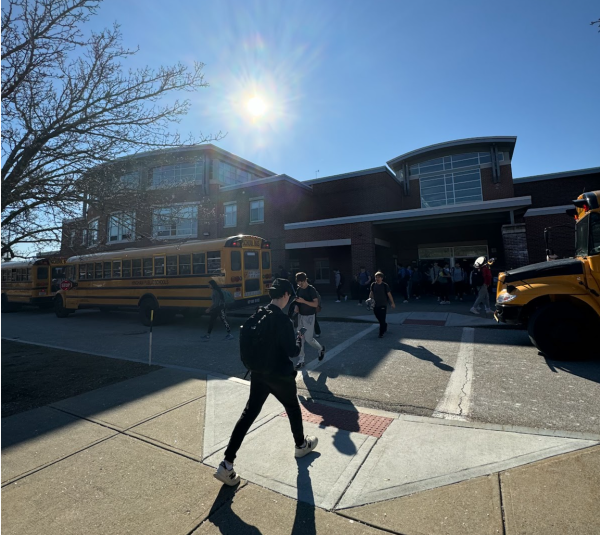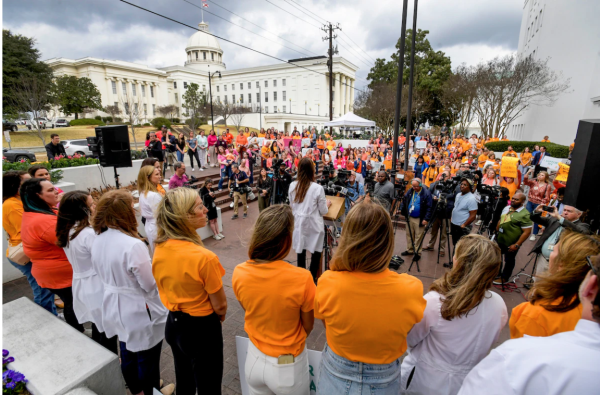2018 Midterms: An Interview With State Representative Candidate Joan Meschino (D)
Photo courtesy of joanmeschino.com
Representative Joan Meschino, the Democrat running for the reelection of state representative of the Third Plymouth District.
October 28, 2018
Representative Joan Meschino, a Democrat, is the state representative of the Third Plymouth District, which includes the towns of Hingham, Hull, Cohasset, and North Scituate. This November, Meschino is running for reelection against republican candidate Kristen Arute. The two ran against each other back in 2016, when Meschino was elected. This year, it is a rematch.
Meschino has lived in the Third Plymouth District for her entire life, and she currently resides with her husband in Hull. Meschino received a Bachelor’s degree in English from Harvard University and a Juris Doctor degree from the University of New Hampshire School of Law.
Before being elected as a state representative, Meschino worked in criminal defense and civil rights law. She later served two terms as a Selectman in Hull, on the Hull Capital Outlay Committee, and as Hull’s representative to the Metropolitan Beaches Commission and the Executive Committee of the Metropolitan Area Planning Council.
Presently, Meschino is a member of the Transportation Committee; Telecommunications, Utilities and Energy Committee; the Small Business and Community Development Committee; and the House Post Audit & Oversight Committee. Additionally, Meschino joined the Ocean Advisory Commission and Metropolitan Beaches Commission.
On Tuesday, October 16th, 2018, I met with Representative Meschino at the Hingham Public Library. Nestled in two arm chairs, we discussed her campaign and plans for the future.
LARKIN: Why have you chosen to run for Third Plymouth District state representative for another term?
MESCHINO: First of all, I should start by saying [that] it has absolutely been my honor and privilege to serve Hingham, Hull, and Cohasset as a Selectman, and I have to say that I enjoy the work tremendously, and we’ve really gotten a lot done. I’ve really worked closely with my towns and accomplished a lot. I feel like… public service is something that has always been important to me.
I used to always tell this story that the first political thing I ever did was tagging around after my dad when I was a little kid when he ran for School Committee. He would knock on doors and give out fliers, and I’d go with him… it was just something I thought everybody did. So, from an early, early point, that was just the way we were raised… that you got involved with your community, you volunteered, you gave back, and you contributed to your community. I’ve done that every step of the way throughout my childhood, my adult life, and in different ways. When I first ran for Selectman in Hull… I enjoyed it tremendously. I was hooked…
This really falls into three buckets. [The first is] the constituent work, which is just helping residents in our community navigate state agencies, it’s sort of the first place you can really go and have someone help you interact. People come forward with all sorts of different needs.. When you help someone, it may seem like a small thing–like a handicapped placard for someone who is elderly–but it can have a real impact in their lives. It’s really very gratifying to help someone in that basic way: health insurance, a Registry of Motor Vehicles that supports people on a regular basis, unemployment insurance, housing, all sorts of different things…
The other piece is working with our communities… Our towns are actually really well-run, very well-managed. We have really strong boards of Selectmen and school committees. There’s a lot of really interesting project work and initiatives in our communities… it’s exciting and it’s all about the quality of life. To be the advocate of the towns, to really work closely with our state senator, to advocate for both the investments we need in our community–think about things like roadways, school funding, state aid for libraries, grants… seawall money, vulnerability assessment planning, money for Barnes Wharf or the Bathing Beach and Hingham Harbor… It’s pretty exciting to help champion our local work.
The third piece is… policy. I’m a bit of a policy nerd. This was the work I was doing before, when I was running a non-profit, so I enjoy being assigned to committees and I enjoy the intellectual pursuit of working on the policy pieces. That piece just gratifies my brain, inspires my brain, too. Part of it just helping people, part of it is being inspired by all the work going on in the communities, and part of it is just, you know, I’m a nerd at heart and I enjoy policy…
I’ve gotten great feedback and I enjoy getting to know the very fabric of our community… it’s really been a tremendous, tremendous honor and privilege, and it’s been really fun and interesting [and] exciting. I am inspired by you all and I am very excited to run for reelection.
LARKIN: Speaking of communities and policy, you are a legislative cosponsor on “The Safe Communities Act.” Why do you support this act?
MESCHINO: So, “The Safe Communities Act” was filed to protect people from Muslim registry, first and foremost. It was filed to protect people’s civil rights, due process rights, and, really, to protect the rule of law. But, at the end of the day, it was really about public safety. There’s a lot of statistics out there, a lot of research, that demonstrates that when you interfere with out community’s ability to do community policing…
The Chief of Police said that we embrace the community policing, we staff based on community policing strategies, and if anyone in this community is in trouble, is injured, or needs helps, you dial 911, and someone qualified will come to help you, regardless. And, no, we will not ask that question, because community policing is about to protect and to serve, it’s about investigating and prosecuting crime.
This bill basically says that we’re not going to let anyone interfere on the state or local level with our public safety… Certain parties try to create a lot of misinformation and misrepresentations and, really, are using scare tactics around how they were talking about that. In fact, it was the right-wing super PAC, funded by dark money, that was really attacking a lot of legislators, including myself, on this topic. They were trying to instill fear in the community and I feel like that was despicable.
But, at the end of the day, everyone should know what the bill was really about was public safety and clarifying the rule of law between the state, local, and federal governments. In fact, we work closely with our federal partners all the time, very successfully, and this bill would not have interfered with that in any way, shape, or form…
It would’ve protected [state and local police] from that federal government overreach… so what [the federal government was] trying to do was to get local police and county sheriffs to hold people longer than their jurisdiction permitted them by law to do… that interferes at the core of what our local police [has] stated how they want to police our community. They’ve been doing it for decades, we have very low crime, [and] it works very well.
LARKIN: You are an opponent of the Weymouth Compressor Station. Why do you disagree with it it?
MESCHINO: So, a couple different reasons. From a public health and safety perspective, to site a facility like that in such a densely populated area, is just wholly irresponsible… typically these types of pieces of infrastructure are out in pastures, where there are just grass and cows and that type of stuff.
Part of its operation is to, on a regular basis, release methane gas buildup. With the methane is a lot of toxic, harmful chemicals that are in parts of the gas… It will either leak gas or expel gas that is very harmful to public health… There is actually a health impact assessment going on right now to see what that would mean for all the different levels of contaminants in that are. That area already has some industrial activity and other commercial activities that already put harmful chemicals out into the atmosphere… It would be harmful in of itself but, layered on top of the other activities that go on there, it just throws it off the charts.
The other piece is public safety. What this does is pressurize gas and gas pipelines… and it’s never been under pressure in the way its proposing. It would basically double the pressure in the pipelines, and people are very concerned… and the pipe happens to go right under the Fore River Bridge… so, if there’s any problem with the pressure, it’s right there under the bridge, and 30,000 commuters travel over that bridge every single day… Another problem is that it’s releasing methane gas into the atmosphere right under the bridge. What’s going over the bridge? Cars. So, we’re very concerned over what could potentially ignite it…
From a public policy standpoint, I oppose this as well because I don’t think we should be investing in any new carbon-based infrastructure right not. I think that, if we’re really serious about tackling climate change and, you know, we’re coastal communities. Sea levels rise. We deal with climate change issues all the time and we experience it in a very dramatic way because we’re on the coast…
I don’t think you get to ask for millions of dollars of seawall money without working on the underlying policy issues. We’ve already agreed as a state that we’re going to try and shrink our greenhouse gas emissions… I think if we’re going to be building any new infrastructure we should be investing in things that are carbon-free emissions or sustainable energy sources like wind…
That pipeline was estimated to cost $7 billion… all of Massachusetts rate payers would have paid for this gas pipeline and almost none of the gas would have been used here, in Massachusetts. It was all for a big corporate company to ship it offshore, overseas.
I oppose it for public health, public safety, public policy, and, quite frankly, to protect our rate payers from bearing the burden of corporate greed.
LARKIN: What is your opinion regarding climate change? What specific legislation have you proposed or would you propose to combat it in the community if reelected?
MESCHINO: Sea level rise and climate change are definitely real. We have been experiencing the impacts… it was pretty hot at the beginning of school, wasn’t it? That was pretty unusual. Extreme temperatures are part of climate change… Even if you don’t believe it’s real, we are definitely seeing changes and effects that we need to be addressing, one way or the other.
I don’t think we can solve all of the world’s problems. But I do think we have a responsibility to manage our own affairs. I do think we have a responsibility to take control of and ethically act responsible around the pieces that we can control.
What I mean by that is, you know, and we’ve already taken a lot of strides towards this–this is not my new idea, I just think I’m one of the first people who’s really talked about, campaigned on it, sort of talked about it relative to our community–but there are steps that we can take to reduce our greenhouse gas emissions… In fact, we already have. The legislature has put in place what they call cap and trade, and it’s basically strategies to procure, to buy, [and] to generate energy from [greener] sources, from carbon-free sources.
That’s why you see people who are talking this session about the Renewable Portfolio Standards, which is really just saying that when we’re purchasing energy that we want a specific portion to be from renewable sources…
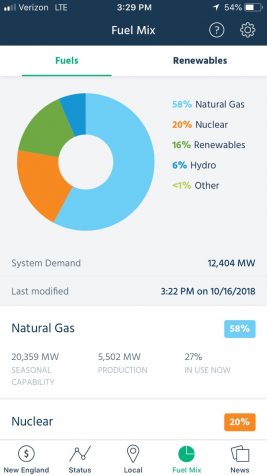
ISO New England Fuel Mix update shown to me by Representative Joan Meschino while discussing climate change on October 16.
What I pushed for this session and what we actually managed to pass was a clean energy bill, and it just said that we will increase our purchase of renewable energy at a more aggressive rate than we have been. In fact, you can go online right now, we purchase power as a New England region, and they call it ISO New England… and you can track it in real time. It’s an app you can just download.
I’ve been advocating for increasing the [Renewable Portfolio Standards]… I think that’s really important because a lot of activities are now electronic…
What we have to think about is what are the sectors where we really have a lot of power generation and just, starting to take strategies that really purchase that power from green sources.
The other thing I think we can be doing is thinking about transportation. 40% of our greenhouse gas emissions come from transportation in Massachusetts. So, I’m actually very interested in public transit, both for that reason and also to mitigate, alleviate, congestion. There’s traffic everywhere in our district, it’s maddening. I think it’s really starting to constrain our ability for economic development, things like that. But it’s also a health issue because it’s all, you know, fumes from the cars…
We’ve got [the ferries] secured now, the T’s making investments in the ferry service, we just had these two new boats… Now, we need, I think to focus on the Commuter Rail, and making sure we start to build a robust schedule and trying to connect more broadly throughout the region.
I also think we should be thinking about things like carbon sequestration, and that’s like preserving forests. We have some of the oldest forests in the state. It’s something that I just recently learned about and I don’t have a strategy for it, but it’s just an idea that I’m interested in that goes along with preserving the natural environment, open space, recreation, [and] the quality of life. All of these strategies can have multiple beneficent effects.
Then, I think the one we never talk about is our own efficiencies in our homes, and, you know, making sure that those windows are tight, that we use insulation, turning off all of our electronics… I think there are multiple strategies that we can employ.
My interest, in this point in the game, is in putting a plan in place for a prosperous and clean energy roadmap so that the administration is looking at all of these strategies and thinking about all of them as an integrated plan. I’m actually going to file a bill next session that will focus on establishing the plan, having accountability, and, you know, the milestones to assess whether or not we’re actually achieving our goals to reduce the greenhouse gas emissions. It should be iterative so that we’re learning along the way and adapting our plan…
There should be multiple paths towards the whole goal and we should be leveraging the expertise that we have in our state agencies and we should push them to establish that plan and hold them accountability to the plan… so that we can actually achieve it. That’s just on a state level. There’s a lot of exciting things going on in Hingham, you have a municipal light plant. That’s pretty exciting… Hull has two wind turbines… and in Cohasset, they just put a solar ray on their capped landfill.
I think, as a state rep, the goal is to champion these projects… and the policies on the state level and to fight policies like the [Weymouth Compressor Station].
LARKIN: Both yourself and your opponent Kristen Arute agree that the opioid crisis is a relevant and prominent issue right now. What have you proposed or would you propose if elected to help deal with this crisis?
MESCHINO: I would say that’s a nonpartisan issue. The statistics are pretty dramatic… it’s hit our South Shore community the hardest. The numbers are pretty clear. Actually, a lot of work has already been done around this on the last session. Governor Baker had signed some legislation around limiting prescriptions, educations of doctors, how powerful these are, and things like that.
This session, I was really proud to vote for the CARE Act. What it really focused on was promoting strategies to prevent opiates… It’s a really amazing bill that really looks at what the strategies should be and the community support for people who are struggling with addiction.
In our district, what it’s really trying to do, is empower local community action groups. In Hingham, it’s Hingham CARES. In Hull, it’s HAPSA. There’s a Cohasset Safe Harbor, and then there’s ScituateFACTS. ScituateFACTS is the one that’s been doing it the longest, and they have just done a tremendous amount around educating people in the community… and building public awareness…
I think the best thing we can do is bring [the issue] out into the light, and really take away the stigmatization. I think the other important thing we’ve come to understand is it takes a few tries. You don’t just say, “I’m going to quit today” and it happens. It takes a commitment, it takes support services, and it takes encouragement.
Cohasset just got a pretty sizable grant… to work with recovery and also prevention. I think that Cohasset Safe Harbor is going to be a leader around vaping, youth ambassadors, and youth prevention… it’s pretty exciting to have voted for the bill, to champion all of that work, and to really help them move everything forward. I’m on the Cohasset Safe Harbor Community Advisory Board.
I think the next piece is mental health issues and… insurance coverage, understanding that it takes a few tries, and building up the programs to actually succeed in recovery.
LARKIN: One of the Five Priorities listed on your website concerns seniors and veterans. What do you plan to do to help these groups of people?
MESCHINO: So, for veterans, you know we have a Veterans Agent for every town, by law. We have a wonderful Veterans Agent here in Hingham, his name is Keith German, and he is the person who helps coordinate benefits, help people find jobs–whatever they need, he is there for them.
One of the things I did last year and that we are organizing again to do this year… is what I called a Veterans Town Hall. Veterans really range in age… and in what their needs are. So supporting the Veterans Agent and the Veteran Service Office, I think, is the number one thing we can do is support that in our local communities.
We held a Veterans Town Hall last year and it was so well-received we’re going to do it again this year… There are always changes in rules, regulations, and the services we provide, and so we invited the Secretary for Veterans Affairs to come down with several of his key staff people and key program leaders just to present on what’s new, get everybody up-to-date, and answer questions. it was interesting… I was just focused on Hingham, Hull, Cohasset, and Scituate, but it actually drew outside our senate region.
I think making sure people have that access to the state agencies and the federal agencies and to be able to help connect them with the services is critically important. And certainly honoring everything that the veterans do. I think remembering and honoring service and making sure we connect youth with what that means, and the sacrifice, and making sure everyone is connected and appreciating the service is equally important. We did sign the BRAVE Act… it’s a small thing, but a meaningful thing… It was nice to be able to vote for that and to just do a little bit more for our veterans.
So, that was one. Then, for seniors, I’m very excited that… AARP has given Scituate a grant to be one of their, sort of, aging well cities to really think about strategies to support seniors [and people] as they age… Anything we can do to support our Councils on Aging, anything we can do to support our seniors living and being connected in their homes and in our community, I’m open to any strategies.
Early on, I did a little private roundtable with my Councils on Aging to start to have some of those conversations. Some of it’s just supporting transportation, some of it’s just the Meals on Wheels, it’s our Councils on Aging. Senior centers are really community centers. As a state rep, I’m committed to working with them and supporting them with whatever they need and to providing those services… So I’m excited to be on this advisory board in Scituate to see what the strategies are and to learn more about that and how that flushes out.
LARKIN: To tie back to Hingham High School, Hingham High School was one of multiple schools on the South Shore and across the country to participate in the March walkout held to express support of increased gun control and to protest gun violence. How do you feel about the recent school shootings and Massachusetts’ stance on gun laws? How have you kept yourself open or will keep yourself open to student concerns?
MESCHINO: Obviously, I’m a state rep and not a School Committee member and those are all decisions that get made on a local level… So, a student approached me and Senator O’Connor and asked if he could create a forum for students to talk about their concerns and so that we could listen to student concerns. It was actually really terrific… we had a wonderful, wonderful dialogue around what, if any, legislation, what their concerns were… I thought it was really just, so well-done by the Hingham students… First and foremost, I am always here to listen to the concerns on any policy topic and to have that dialogue with students across the board…
The legislature is not really specific to schools, it was responsive to schools… I wasn’t really part of the original legislation because I’ve only been in the one term for two years. But, before I was elected, there was apparently really big gun safety legislation that was sponsored by the Speaker of the House. After the Las Vegas shooting… there was a very technical fix to the law, and that small piece I obviously voted for. But the larger public safety, gun safety legislation happened before i got in there.
But then, subsequently, in response to some of the shootings in schools, the legislation voted on ERPO… Massachusetts has the best gun safety, licensing laws in the nation. I think we have a really good culture around responsible gun ownership here… That was one thing where the legislature, i think, was able to find a good balance between gun owners and their rights and public safety and to address genuine concerns around public safety and health… I think we have a nice balance here in Massachusetts. The question really is how do you get further at it. I don’t know the answers to that. I really don’t. But I think that, as long as the state legislature continues to listen, to be thoughtful, to be responsive, to be thoughtful in its response, and to continue to have a dialogue around safety, I mean, I have to figure that we will be able to figure these things out.
LARKIN: Finally, why do you believe that people should vote for you this November?
MESCHINO: No one will work harder than I have or that I will to get to know our district, and that’s in so many ways: meetings, coalitions, advocacy groups, working with our local electives, knocking on doors and actually introducing myself, and really getting that understanding [of] the fabric of our community.
Basically, I walk up every day and I think to myself, “What am I going to do, as a state representative, today, that will make a difference in the lives of the folks that live in my communities?” So, that’s why I humbly ask for everybody’s vote on November 6th and why I think everyone should vote for me. I’ve been a tireless advocate for the issues that matter to the district and it’s getting the local aid here. We got the biggest increases locally that we’ve seen in a long time this year for schools, roads, libraries, comprehensive solutions to the opioid crisis, climate change, sea level rise, and the need for resiliency and adaptation.
And then, really, at the end of the day it’s all about economic development. What are the strategies and the investments that the state can be making in our local communities that really speak to the quality of life down here and the infrastructure that we need to attract, you know, the kinds of small businesses and people that really sync our community and make for a really robust quality of life?
Representative Meschino concluded this interview with a reminder to all young people to register to vote or to vote if of age on November 6th. Your voice does count.



